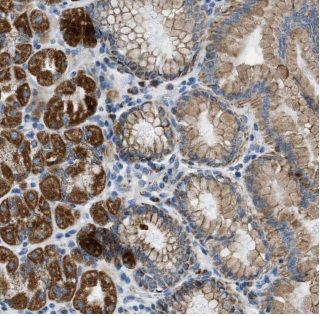| Clonality | monoclonal |
| Host | Mouse |
| Specificity | Human, Mouse |
| Tested Application | ELISA, WB, IHC |
| Delivery Time | 2 to 4 working days |
| Clone ID | 0A11 |
| Isotype | IgG1 |
| Form | liquid |
| Purification | Protein A+G purification |
| Purity | ≥95% as determined by SDS-PAGE |
| Uniprot ID | P35221 |
| Gene ID | |
| Ссылка на страницу на сайте производителя | ссылка |
| Инструкция | PDF |
| Storage | PBS with 0.02% sodium azide and 50% glycerol pH 7.3,-20℃ for 12 months(Avoid repeated freeze / thaw cycles.) |
| Background | Associates with the cytoplasmic domain of a variety of cadherins. The association of catenins to cadherins produces a complex which is linked to the actin filament network, and which seems to be of primary importance for cadherins cell-adhesion properties. Can associate with both E-and N-cadherins. Originally believed to be a stable component of E-cadherin/catenin adhesion complexes and to mediate the linkage of cadherins to the actin cytoskeleton at adherens junctions. In contrast, cortical actin was found to be much more dynamic than E-cadherin/catenin complexes and CTNNA1 was shown not to bind to F-actin when assembled in the complex suggesting a different linkage between actin and adherens junctions components. The homodimeric form may regulate actin filament assembly and inhibit actin branching by competing with the Arp2/3 complex for binding to actin filaments. May play a crucial role in cell differentiation. |
| Immunogen | catenin(cadherin-associated protein), alpha 1, 102kDa |
Immunohistochemistry of paraffin-embedded human stomach tissue slide using FNab02056(CTNNA1 Antibody) at dilution of 1:200
 |
NIH/3T3 cells were subjected to SDS PAGE followed by western blot with FNab02056(CTNNA1 Antibody) at dilution of 1:1000
 |
| | |
